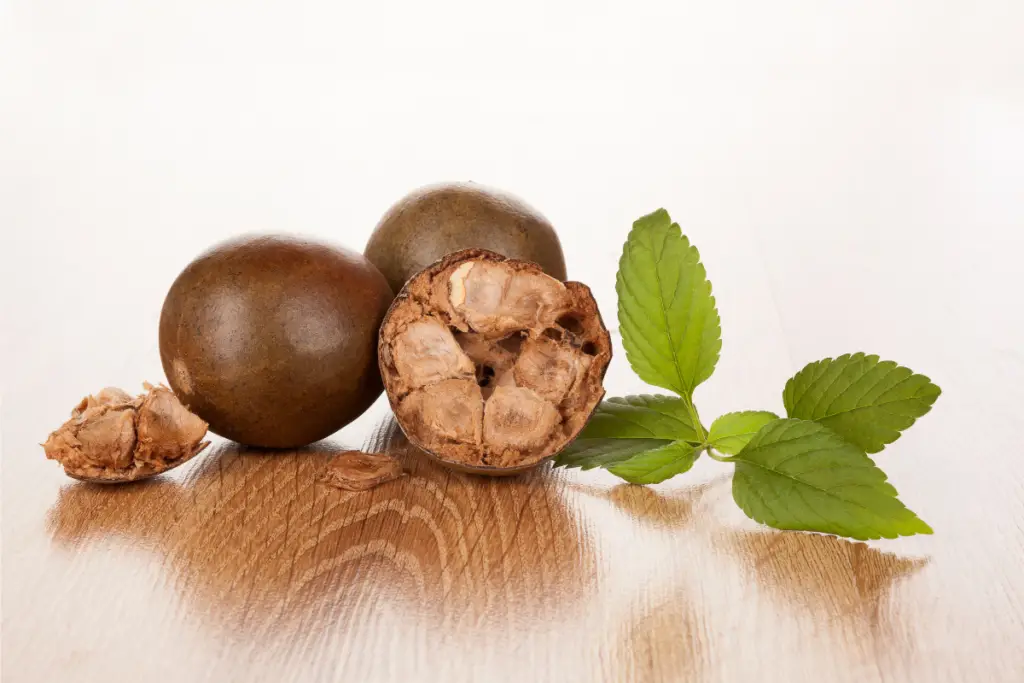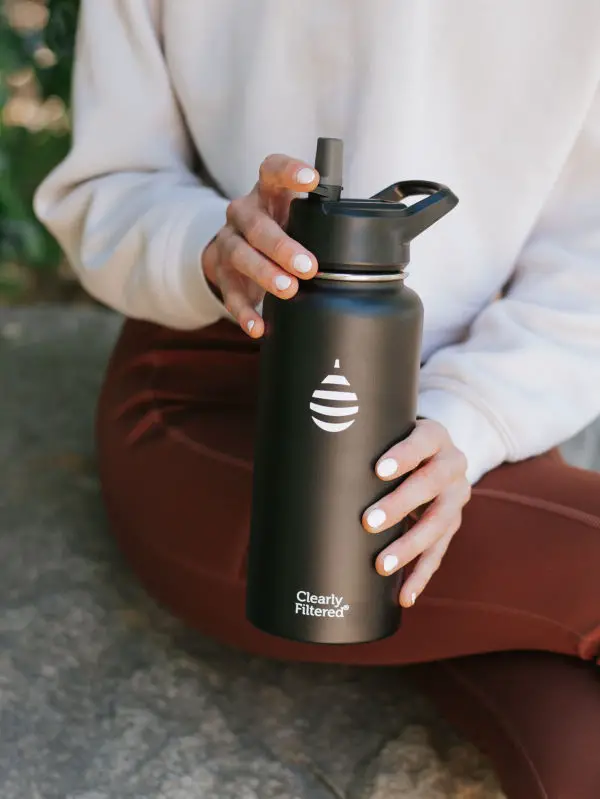While many flavored sparkling waters may rely on artificial sweeteners like sucralose, aspartame and erythritol a select few brands have risen to the challenge, creating tantalizing options sweetened with natural fruits.
Whether you’re drawn to classic fruity flavors or crave unique flavor combinations, we’ve curated a list of 6 sparkling water options guaranteed to cater to your preferences. From subtly infused hints of fruit to bold bursts of botanical extracts, these beverages are crafted to tantalize your taste buds without any added sugar or sweeteners.
For more information about common drink additives used as sugar replacements, click here.

Sparkling Water – No Added Sugar | Natural Fruit Flavor
1. Betty Buzz Sparkling Drinks
These beverages offer a guilt-free and refreshing experience, as they are crafted with natural flavors and contain no added sugar. With a commitment to delivering pure and authentic taste, Betty Buzz sparkling drinks capture the essence of real fruits, including Meyer Lemon, Grapefruit and Lemon Lime, providing a naturally delightful option for those seeking a healthier beverage choice.
2. Crystal Geyser Natural Flavored Sparkling Spring Water
Crystal Geyser Natural Flavored Sparkling Spring Water includes an array of flavors, including black cherry, cranberry clementine, green apple, lemon, lime, mixed berry, orange, and peach.
Crafted without any artificial ingredients or sweeteners, this brand of sparkling water is carbonated and non-GMO for a guilt-free refreshment.
3. Hint Sparkling
Hint Sparkling Water has zero sugar, zero calories, zero sweeteners, and zero artificial flavors or preservatives.
Flavors include blackberry, cherry, ginger, grapefruit, peach, strawberry-kiwi, and watermelon. Made with purified water and natural flavors, each sip is a burst of authentic fruit essence without any added sugar or diet sweeteners.
4. AVEC
AVEC sparkling water flavors use only real, fresh, and delicious ingredients without any artificial flavors, preservatives, or sugars. With low or no sugar and low-calorie content, it’s a guilt-free option that doesn’t compromise on taste.
Flavors come from real fruits and spices including ginger, grapefruit, jalapeno and blood orange, spiced mango and passionfruit, hibiscus and pomegranate, yuzu and lime.
5. Sanpellegrino Fruit Flavored Sparkling Mineral Water
S.Pellegrino Essenza Flavored Mineral Water contains zero sweeteners and zero calories, ensuring a guilt-free and delightful experience.
It comes in a variety of tantalizing flavors like blood orange and black raspberry, dark morello cherry and pomegranate, lemon and lemon zest, pink grapefruit and citrus, and tangerine and wild strawberry.
6. Sanzo
Sanzo is an Asian-inspired sparkling water that offers authentic natural flavors made with real fruit and no added sugar. Flavors include delightful Yuzu (Lemon), Pomelo (Grapefruit), Calamansi (Lime), Lychee (Berry), and Mango (Alphonso), each crafted with real fruit and free from sugars. Plus, Sanzo is gluten-free, vegan, and non-GMO.
Common Drink Additives Used As Sugar Replacements
You may be curious about the secret ingredients that make some drinks taste so sweet without all the sugar? Next, we’ll be exploring some of the most common sugar replacements that add sweetness to beverages while keeping the calorie count in check.
It’s essential to remember that while these additives provide sweetness without added sugar, some people may have sensitivities or allergies to certain sweeteners. It’s always a good idea to check the ingredients list and consult with a healthcare professional if you have any concerns about consuming these additives.
1. Aspartame
Aspartame is a low-calorie artificial sweetener that is approximately 200 times sweeter than traditional table sugar. It is commonly used to sweeten beverages without adding extra calories or sugar.
However, the safety of aspartame is a subject of debate. Some studies suggest it may aid in weight loss, while others claim it could lead to weight gain and negatively impact metabolic rate and glucose regulation. Concerns have been raised about a possible link between aspartame intake and cancer, although no human studies have confirmed this association.
Health experts advise individuals with phenylketonuria (PKU), a rare inherited metabolic disorder, to avoid aspartame, as it contains an amino acid called phenylalanine, which can be harmful to people with this condition as their bodies are unable to properly break it down. Additionally, some people taking blood pressure medications are advised to avoid aspartame. As with any food or beverage, moderation is crucial, and the decision to consume products containing aspartame ultimately lies with the individual consumer.
2. Sucralose
Sucralose, also known as Splenda, is a popular artificial sweetener found in yellow packets. It’s made from real sugar but is much sweeter and has almost no calories. People use it in drinks like soda and flavored water to enjoy sweetness without the extra calories and sugar spikes. Sucralose tastes good and doesn’t leave an aftertaste like some other sweeteners.
It’s a great option for those looking to cut calories and control their blood sugar levels, making it suitable for people with diabetes. However, ongoing research is still looking into its effects on weight and gut health. Some studies suggest it might help with weight loss, while others say it could increase calorie intake and weight.
Sucralose is considered safe by organizations like the FDA, but it’s essential to use it in moderation and be aware of other sweeteners in foods and drinks. Mixing different sweeteners can make things even sweeter, so it’s a good idea to use them wisely.
3. Stevia
Stevia is a natural sweetener derived from the leaves of the stevia plant. It is used as a sugar substitute in drinks and beverages labeled as “natural” or “zero-calorie.” Stevia provides sweetness without adding calories, making it a popular choice for those looking to reduce their sugar intake. It is considered safe for consumption by various health organizations and is commonly found in flavored water, teas, and other low-calorie beverages.
4. Fruit Essence
You may have noticed the term “fruit essence” popping up on various drink ingredient lists. This intriguing ingredient is gaining popularity as a natural and flavorful alternative to traditional drink flavorings. But what exactly is fruit essence?
Fruit essence is a concentrated form of natural fruit flavor and aroma created by extracting essential oils and aromatic compounds from the peels, pulp, or juice of various fruits. The process involves methods like steam distillation, cold-pressing, or solvent extraction to obtain a highly potent liquid that captures the essence of the fruit’s flavor.
When it comes to flavored water, fruit essences play a pivotal role in transforming plain water into a delightful and refreshing drink. Instead of relying on artificial sweeteners or sugary syrups, fruit essences offer a healthier and more authentic alternative to enhance your water experience.
These essences add a delightful twist to your favorite drinks without adding unnecessary calories or artificial ingredients.
5. Erythritol
Many brands of flavored water use products like Erythritol to keep the calories low while maintaining that sweet taste. It is becoming increasingly popular as a low-calorie and diabetic-friendly alternative to sugar due to its minimal impact on blood sugar levels.
Erythritol is a sugar alcohol and low-calorie sweetener, providing 6% of sugar’s calories with 70% of its sweetness. It does not contribute to tooth decay, as oral bacteria cannot metabolize it. It is well-tolerated by most people and is considered safe when consumed in moderate amounts. However, some individuals may experience gastrointestinal discomfort if consumed in excessive quantities.
Although Erythritol can be naturally found in some fruits, it is typically manufactured and therefore it can be both regarded as natural and artificial.
Naturally occurring Erythritol:
Erythritol is found naturally in some fruits like pears, watermelon, and grapes, as well as in certain fermented foods like cheese, wine, and soy sauce. It is also present in small amounts in some mushrooms and seaweed. However, the amount of erythritol found naturally in these sources is relatively low.
Commercial production of Erythritol:
The commercial production of erythritol involves a fermentation process using certain yeast or fungi. Here’s a general overview of the steps involved:
- Starting material: The process begins with a source of simple sugars, usually obtained from corn or wheat starch. These starches are broken down into glucose through enzymatic hydrolysis.
- Fermentation: Next, the glucose is fermented using specific yeast or fungi, such as Moniliella pollinis or Trichosporonoides megachiliensis. These microorganisms convert the glucose into erythritol.
- Purification: After fermentation, the mixture undergoes a purification process to remove impurities and separate the erythritol from the fermentation broth.
- Crystallization: The purified erythritol is then concentrated and crystallized to produce the final product, which resembles white, granulated sugar in appearance.
Unsurprisingly, we found that many popular sparkling water products add Erythritol. However, some brands, such as Tru Rescue Seltzers and Bubbl’r, list Erythritol as their second highest ingredient after water.
Due to differing opinions on whether Erythritol is considered artificial and the fact that certain individuals may need to limit their sugar intake, we made a conscious decision to exclude products containing Erythritol high up on their ingredients lists from the above-mentioned list.
6. Xylitol
Xylitol is a type of sugar alcohol commonly used as a sugar substitute in drinks. It has a sweet taste like regular sugar but contains fewer calories and doesn’t cause a rapid rise in blood sugar levels.
The main source of xylitol is birch wood or corn cobs, although it also occurs naturally in small amounts in certain fruits and vegetables. When used in drinks, xylitol provides sweetness without the negative effects of sugar, making it an appealing option for low-calorie or sugar-free beverages.
One remarkable benefit of xylitol is its ability to promote dental health. Unlike regular sugar, which feeds harmful bacteria in the mouth and causes cavities, xylitol has the opposite effect. It can actually inhibit the growth of cavity-causing bacteria, helping to prevent tooth decay and promote better oral hygiene.
It’s generally safe for most people when consumed in moderate amounts, but consuming excessive xylitol can lead to digestive issues such as bloating, gas, and diarrhea.
Overall, xylitol is considered a safe and effective sugar substitute, particularly for those seeking to cut down on sugar intake and improve their dental health. Its versatility and benefits make it an attractive option for various drinks and other products, but as with any sweetener, it’s best to use it in moderation.
7. Monk Fruit Extract

Monk fruit sweetener, also known as monk fruit extract, is a natural and calorie-free sugar alternative that comes from a fruit called monk fruit.
It’s super sweet, about 100–250 times sweeter than sugar, thanks to special antioxidants in the fruit.
To make the sweetener, they take out the seeds and skin of the fruit and turn the juice into a powder. It’s used in foods and drinks to add sweetness without the extra calories and sugar.
Some people think it might help with weight loss because it has no calories, but more research is needed to be sure. It also has antioxidants that could be good for health, like fighting inflammation and maybe even helping with blood sugar levels.
Monk fruit sweetener is considered safe to eat, and there haven’t been any reported side effects.
8. Acesulfame Potassium (Ace-K)
Acesulfame potassium, also known as Ace-K, is an artificial sweetener commonly used in combination with other sweeteners in diet sodas and other low-calorie beverages. It is about 200 times sweeter than sugar but contains zero calories, making it a favorite choice for those seeking sweetness without added calories. Manufacturers often combine it with other sweeteners to reduce its bitter aftertaste.
The safety of acesulfame potassium has been a topic of debate. Some studies suggest it may interfere with appetite regulation, body weight, and blood sugar control. There have also been concerns about its safety during pregnancy. However, both the U.S. FDA and European authorities have deemed it safe for human consumption based on numerous studies.
Acesulfame potassium is a widely used artificial sweetener, but its safety and long-term effects continue to be topics of research and debate among experts.
9. Saccharin
Saccharin is an artificial sweetener that has been used for over 100 years as a substitute for sugar. It’s about 300-400 times sweeter than sugar, so you only need a little bit to make drinks taste sweet.
The good news is that health experts say saccharin is safe. It’s been tested and approved by organizations like the World Health Organization and the Food and Drug Administration.
Saccharin can also be helpful for people with diabetes because it doesn’t affect blood sugar levels like sugar does.
But, some studies suggest that saccharin might change the bacteria in our gut, which could lead to health problems. However, more research is needed to understand this better.
Overall, saccharin can be a useful sugar substitute, but like anything, it’s best to enjoy it in moderation.
10. Sorbitol
Sorbitol is a type of carbohydrate known as a sugar alcohol or polyol. It occurs naturally in some fruits like apples and berries, but it is also commercially produced from corn syrup and used as an additive in various packaged foods, beverages, and medications.
As a sugar substitute, sorbitol is about two-thirds as sweet as regular sugar and provides approximately 60% of the sweetness. It is commonly used in sugar-free or low-calorie products to reduce calorie content and is often added to foods marketed to people with diabetes due to its minimal impact on blood sugar levels.
Additionally, sorbitol is used as a laxative to relieve constipation, drawing water into the colon to promote bowel movements.
While sorbitol is considered safe in moderate amounts, consuming large quantities can cause bloating and diarrhea, especially for those not accustomed to its consumption.
What are “Natural Flavors”?
Another common additive you may see on a drink’s ingredients list is “natural flavor”. This indicates that the beverage contains flavorings derived from natural sources, adding a touch of nature’s goodness to your favorite drinks.
These natural flavors are derived from substances extracted from plant or animal sources, including spices, fruits, vegetables, herbs, bark, buds, root leaves, plant material, dairy products, meat, poultry, seafood, and eggs. The extraction process can involve heating or roasting the animal or plant material.
The Food and Drug Administration (FDA) Code of Federal Regulations defines natural flavors as flavors derived from these plant or animal sources. However, the term “natural” does not have an official FDA definition, leading to some confusion among consumers.
Natural flavors are meant to enhance the flavor of food and drinks but do not necessarily contribute significant nutritional value. They are commonly found in various processed beverages, and research suggests they are among the most common ingredients listed on food and drink labels.
While natural flavors must meet safety requirements, they can be complex mixtures that contain many different chemicals. In most cases, they appear safe for human consumption when consumed occasionally in processed foods. However, individuals with food allergies or specific dietary restrictions should be cautious and investigate the substances included in natural flavorings.
Overall, natural flavors are widely used in the food and beverage industry to provide authentic and enticing tastes to various products, but it’s essential for consumers to be aware of their sources and potential reactions, especially for those with special dietary needs.
Final Thoughts
Sparkling water infused with natural fruit flavors and free from added sugars or sweeteners offers a delightful and guilt-free drinking experience. With a wide array of tantalizing options, from subtly infused hints of fruit to bold bursts of botanical extracts, these beverages cater to diverse taste preferences while promoting hydration and revitalization.
Embracing the goodness of real fruits and leaving artificial additives behind, these sparkling waters provide a refreshing and healthier alternative to traditional sugary sodas or fizzy drinks.
Cheers to a refreshing and revitalizing sparkling water experience!
The Best Water Filter Bottle We’ve Ever Used
Clearly Filtered | Stainless Steel Filter Bottles
We really love these filter bottles for keeping your drinks cool and contaminant free! They remove 99.9% of over 220 contaminants and use BPA-free plastics and double-walled stainless steel to produce some awesome looking designs with numerous bottle sizes for every situation. You can find them at Clearlyfiltered.com







